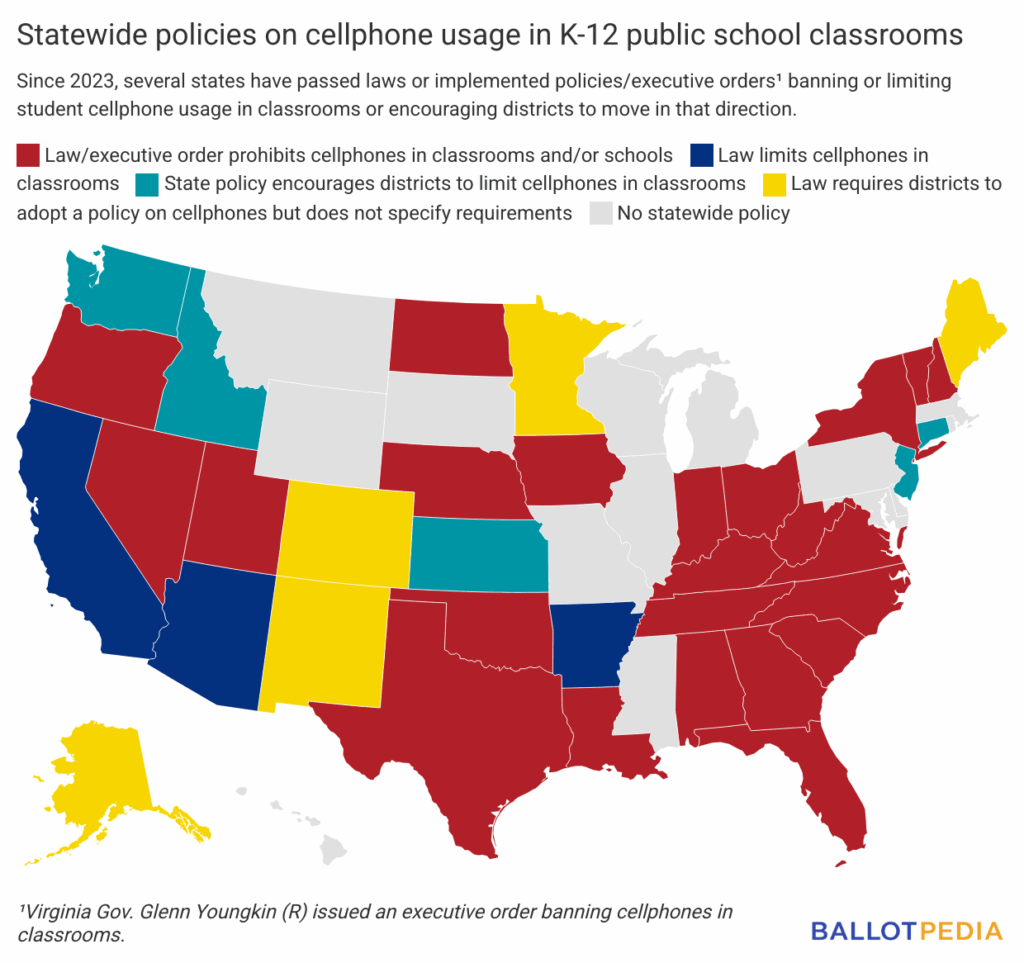New Jersey is one of two states holding gubernatorial elections this November, along with Virginia. In both states, the incumbents are term-limited, and both elections made our list of the top 10 November races to watch.
Here’s a look at where the candidates in New Jersey stand on issues related to K-12 education.
Mikie Sherrill (D), Jack Ciattarelli (R), Vic Kaplan (L), and Joanne Kuniansky (Socialist Workers Party) are running to succeed incumbent Gov. Phil Murphy (D). Sherrill and Ciattarelli have both polled above 40% in recent surveys.
Sherrill was elected to represent New Jersey's 11th Congressional District in 2018. Before her election, Republicans had represented the district since 1985. Sherrill previously worked as a lawyer in private practice and the U.S. Attorney's office for the District of New Jersey. Her priorities include increasing new home construction, capping prescription drug costs, and expanding the state's child tax credit.
Ciattarelli represented District 16 in the New Jersey General Assembly from 2011 to 2018. He previously served on the Raritan Borough Council from 1989 to 1995 and the Somerset County Board of Commissioners from 2007 to 2011. This is Ciattarelli's third bid for governor after running unsuccessfully in 2017 and 2021. His priorities include capping property taxes, reducing state spending by 30%, and expanding charter schools.
The New York Times’ Tracey Tully writes that the “race is considered particularly competitive. Democrats hold a sizable registration advantage, but Mr. Trump fared far better in the state than expected last November, buoying Republican hopes.”
New Jersey voters have not elected a member of the same party for three consecutive gubernatorial terms since 1961. However, in eight of the 10 gubernatorial elections from 1985 to 2021, voters elected a governor from the opposite party of the president.
What have the candidates said about K-12 education?
Both candidates have addressed education on their campaign websites and in interviews and debates.
Sherrill has made student mental health and tutoring cornerstones of her plan. Sherrill said she’ll introduce “legislation to provide high-quality tutoring to students” and increase the number of school counselors and mental health services in schools. Sherrill has also said she’d make school meals free for all students.
Ciattarelli has focused on providing families with more educational choices within and outside the public school system, combating teachers unions, and working with the New Jersey Department of Education to raise achievement levels at low-performing schools.
Sherrill and Ciattarelli disagree over the Trump administration’s moves to reduce the number of employees working in the U.S. Department of Education. Sherrill said, “The dismantling of the Department of Education is [a] huge issue and we’re going to see a huge hit come into [the] state budget. It’s why I fought so hard to say we’re going to claw back that money.”
Ciattarelli said, “I don’t necessarily have [a] problem with the president and the administration downsizing the Department of Education.”
Sherrill and Ciattarelli have said they support changing the state’s funding formula. Sherrill said the formula “was not totally fair—it doesn’t put more into the districts that have more people with learning disabilities, for example.”
Ciattarelli said, “I have a very specific plan on how to lower property taxes. We need a new school funding formula. A more equitable one will help lower the property tax.”
Both Sherrill and Ciattarelli support expanding the Interdistrict Public School Choice Program, which allows students to transfer to schools in a different school district.
During a Sept. 24 debate, Sherrill said she supported expanding charter schools. Ciattarelli has made charter school expansion a central part of his education plan, saying, “As Governor, I would be a strong proponent of school choice and charter school expansion.”
Sherrill has not released a public statement on private school choice programs, but has said she would “fully fund our schools so every kid, regardless of what language they speak or what ZIP code they are in, has access to a high-quality public school education.” Ciattarelli said, “I’m an educational choice guy. We need vouchers like we’ve seen with success in Arizona, Ohio, and Florida.” Ciattarelli also said he would opt the state into the federal K-12 education tax credit created through the One Big Beautiful Bill Act earlier this summer.
New Jersey is one of 14 states without state-level policies governing student cellphone use in K-12 public schools. Sherrill said she would support a bill banning cellphones in classrooms. Ciattarelli said he supports limiting student access to cellphones during class time but believes the policies should be determined at the district level.

Click here to read more about the New Jersey gubernatorial election. Click here to learn what Abigail Spanberger (D) and Winsome Earle-Sears (R), the candidates running for governor in Virginia, have said about their K-12 education plans.
A version of this story appeared in Hall Pass, Ballotpedia's weekly newsletter on education policy and school board politics. Click here to subscribe.



